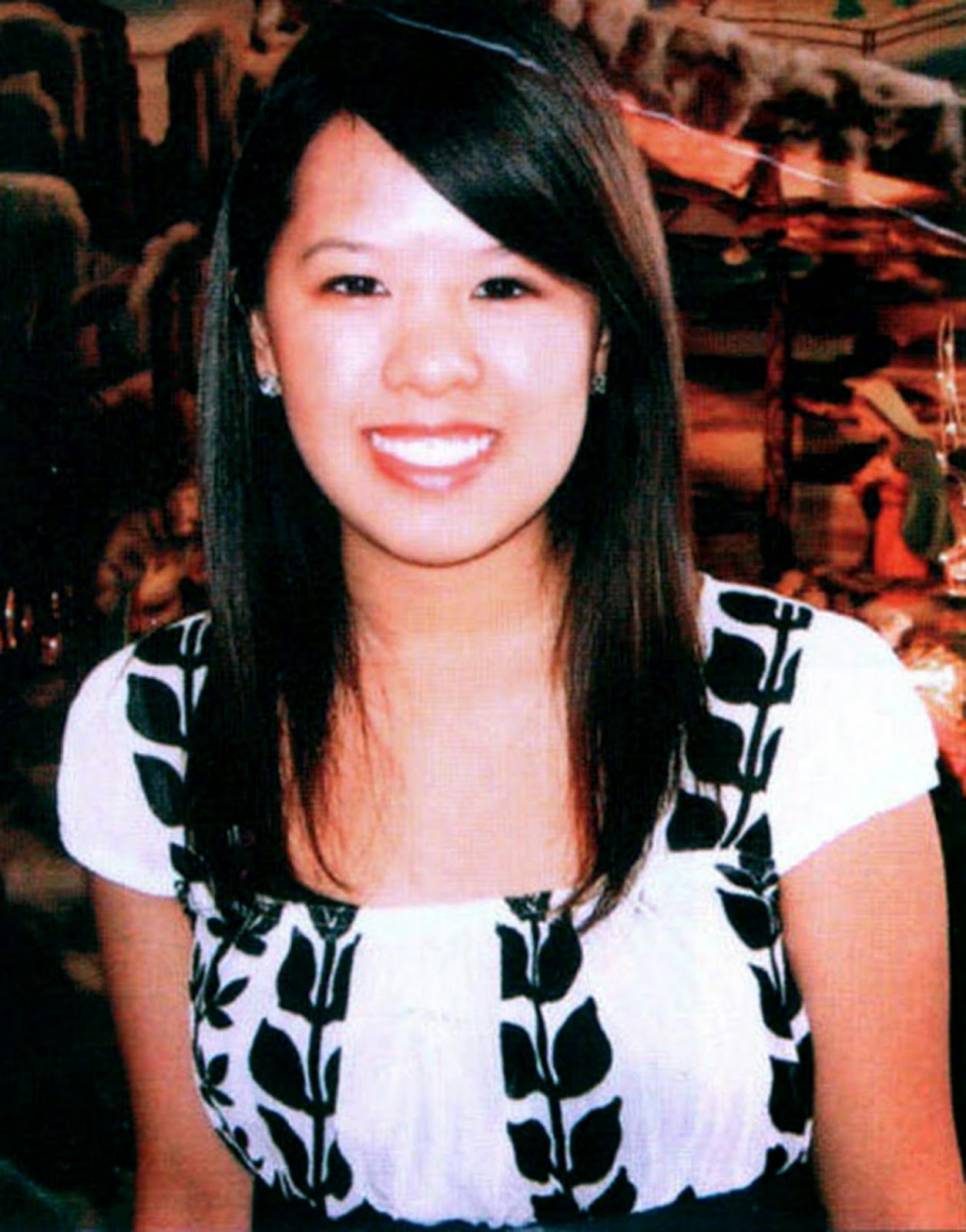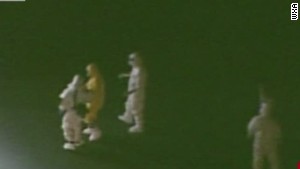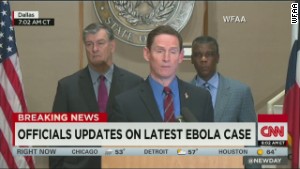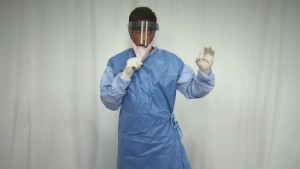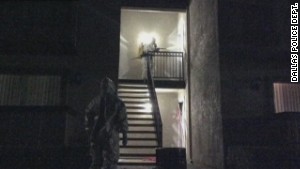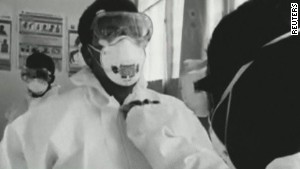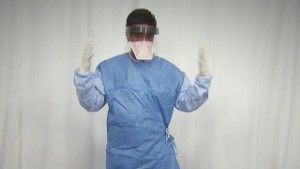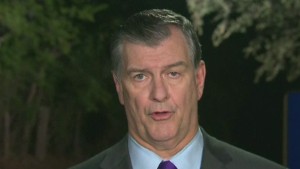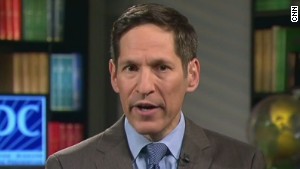(CNN) -- An Ebola-stricken Texas nurse will fly to a Maryland hospital that specializes in the deadly virus, and several Ohioans have isolated themselves out of fear they were exposed to another Texas nurse with Ebola, officials said Thursday.
Federal health officials are facing Congress over how the U.S. has handled the crisis, and another person in Connecticut is exhibiting symptoms of the virus and has received an Ebola test.
Thursday developments include:
• A top health official in Texas apologized for what he called mistakes in how Texas Health Presbyterian Hospital Dallas handled its first Ebola patient -- a Liberian national who was initially told to go home after he came in complaining of a fever and saying he'd recently been in West Africa.
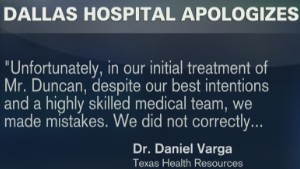 Texas hospital apologizes, is it enough?
Texas hospital apologizes, is it enough?
• Federal officials are considering barring 76 hospital workers who treated an Ebola patient from boarding airplanes.
•
Texas nurse Nina Pham is being sent to a National Institutes of Health hospital in Maryland for specialized Ebola treatment.
• In northeast Ohio, one person has been quarantined, and six others have quarantined and are monitoring themselves for Ebola, after coming into contact or being in the vicinity of Ebola-stricken Texas nurse Amber Vinson, Ohio Department of Health spokesman Jay Carey said. Several Texas and Ohio schools are closed as a precaution against exposing faculty and students.
• There is concern, too, at Yale University, where a doctoral student who recently returned to Connecticut from Liberia has a fever and is in isolation at Yale-New Haven Hospital, hospital officials told reporters Thursday. The student is being tested for Ebola, they said, and results should be available within 24 hours.
The congressional hot seat and an apology
Texas Health Presbyterian nurses Vinson and Pham treated
Thomas Eric Duncan when he was hospitalized for Ebola in late September. He died at the hospital on October 8.
In testimony before the House Energy and Commerce Committee, Dr. Daniel Varga, the chief clinical officer for Texas Health Services, blasted the hospital for sending Duncan home even though he displayed Ebola symptoms and spoke about his recent travel in West Africa.
"Unfortunately, in our initial treatment of Mr. Duncan, despite our best intentions and a highly skilled medical team, we made mistakes," Varga
said in written testimony to lawmakers.
"We did not correctly diagnose his symptoms as those of Ebola. We are deeply sorry."
Varga said hospital staffers were given guidance on
Ebola symptoms several times over the summer.
He said the hospital has made several policy changes regarding the virus, such as updating the emergency department screening process to require asking a patient for his or her travel history and increasing training for staffers.
Dr. Tom Frieden, director of the Centers for Disease Control and Prevention, also criticized how Vinson's case was handled. She had a fever and said called the CDC to ask if she could board a flight, disclosing that she'd had contact with someone with Ebola. She said that she was told she was cleared to fly and did.
It's not clear who she spoke with at the CDC or what exactly she was told. Regardless, 132 passengers on her flight are wondering if they were exposed.
Frieden said she never should have been allowed to get on a commercial fight.
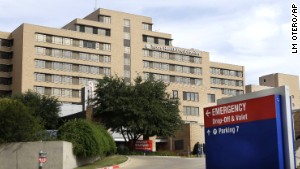 Ebola patient on plane before diagnosis
Ebola patient on plane before diagnosis
He said there's an "extremely low" risk to anyone else on that plane, but the CDC is reaching out to all passengers as part of "extra margins of safety."
Vinson, 29, is now being treated at Emory University Hospital in Atlanta, which has successfully treated two other Ebola patients and has not had any employees infected.
On Thursday Frieden testified that in order to guard the U.S. from Ebola, the virus needs to be stopped at the source in West Africa. If Ebola spreads more widely in Africa, it could threaten the American health care system "for a long time to come," he said.
Banning travel from Guinea, Sierra Leone and Liberia, where Ebola has struck the hardest, is not the solution, Frieden stressed. If that happened, it might prompt people to enter the U.S. in ways that make it more difficult to track them, he said.
Nurse: 'We never talked about Ebola'
Another Texas Health Presbyterian Hospital nurse is speaking out, telling NBC's "Today" show Thursday that nurses did not have mandatory Ebola training, except for an optional seminar that didn't allow them any hands-on practice.
"We never talked about Ebola. We never had a discussion," Briana Aguirre said.
She said she was not involved in treating Duncan, who received care at the hospital in late September and died there on October 8.
Training for Texas Health Presbyterian's nursing staff amounted to "just information," she said. "We were never told what to look for."
"All I know for sure is that he (Duncan) was put into an area where there are around seven other patients," she said. "We took around three hours to make first contact with CDC to let them know what we had of our suspicion. There were no special precautions other than basic contact precautions. No special gear."
She said the hospital did not know what to do with one of his lab specimens.
A lab technician told Aguirre the specimen was "mishandled," she said. "It was a chaotic scene."
She said there was an effort to contact the hospital's infectious disease expert to determine the correct Ebola treatment protocol.
"Their answer was, 'We don't know. We will have to call you back,' " she said.
Hospital fires back after claims
After
scathing allegations by a nurses' union, a Texas Health Presbyterian spokeswoman said some of the care givers' claims are not true.
Citing interviews with nurses at the hospital,
the union National Nurses United have said Duncan was "left for several hours, not in isolation, in an area where other patients were present" during his second visit to the hospital.
But hospital spokeswoman Candace White said Duncan "was moved directly to a private room and placed in isolation" during his second visit.
And after the union claimed "there was no one to pick up hazardous waste as it piled to the ceiling," White said the waste was "well-contained in accordance with standards, and it was located in safe and containable locations."





























